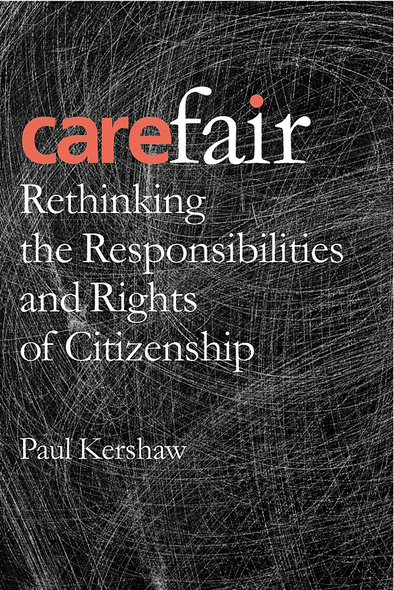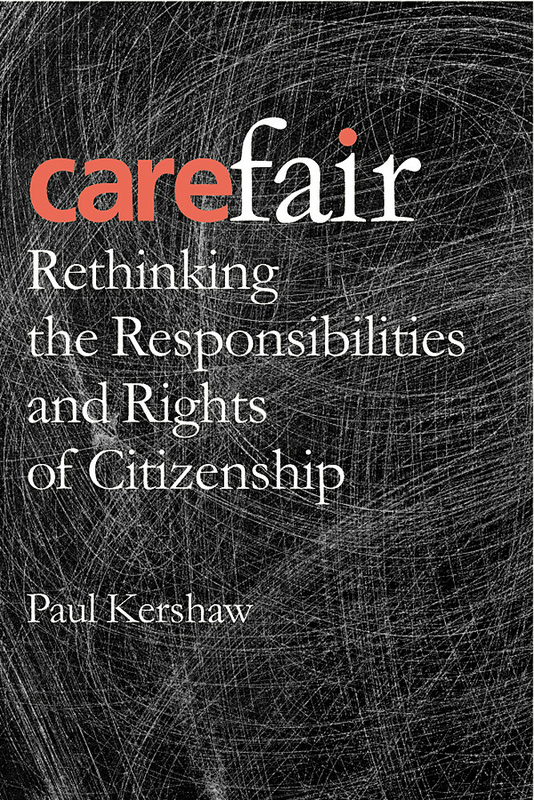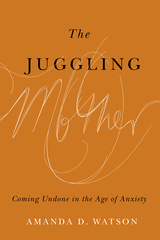Our shopping cart is currently down. To place an order, please contact our distributor, UTP Distribution, directly at utpbooks@utpress.utoronto.ca.

We often think of care as personal or intimate, and citzenship aspolitical and public. In Carefair, Paul Kershaw urges us toresist this private/public distinction, and makes a convincing case fortreating caregiving as a matter of citizenship that obliges andempowers everyone in society.
Carefair has its roots in the rise of "duty"discourses - in neoliberalism, communitarianism, the thrid way, socialconservatism, and feminism - that advocate renewed appreciation forobligations in civil society. The convergence of these discourses,Kershaw argues, signals the possibility for political compromise infavour of policies that will deter men from free-riding on female care.The author invites readers to rethink the role of care duties andentitlements in their daily lives, in public policy, and in debatesabout social inclusion. He provides a detailed blueprint for morepublic investment in work-family balance, and recommends amendments toCanadian parental leave, child care, and employment standards thatwould collectively form a caregiving framework analogous toworkfare.
This is a book well worth reading. It squarely addresses a policy issue that is fundamental to the pursuit of quality and equity, it is theoretically engaged while making concrete policy proposals, and it is closely argued ... That stated, Carefair is an important and stimulating book. It should be widely read.
Carefair contributes to an urgent debate on the importance of public sites of care for poor children, whose mothers and fathers are denied both the time for care and the time for citizenship
Contents
Acknowledgments
1 Lamenting the Lazy Lavatory Syndrome: Political Theory, Policy,and Civic Virtue
2 The American ExpressTM Model of Citizenship: The Social LiberalTradition
3 The Celebrated Idiot: The Obliged Citizen
4 The Idiot’s Acumen
5 Premature Celebration
6 Private Time for Social Inclusion
7 Carefair
8 The Politics of Time
9 From LEGOTM to Teeter-Totter: Social Investment in Work-LifeBalance
Notes
References
Index







